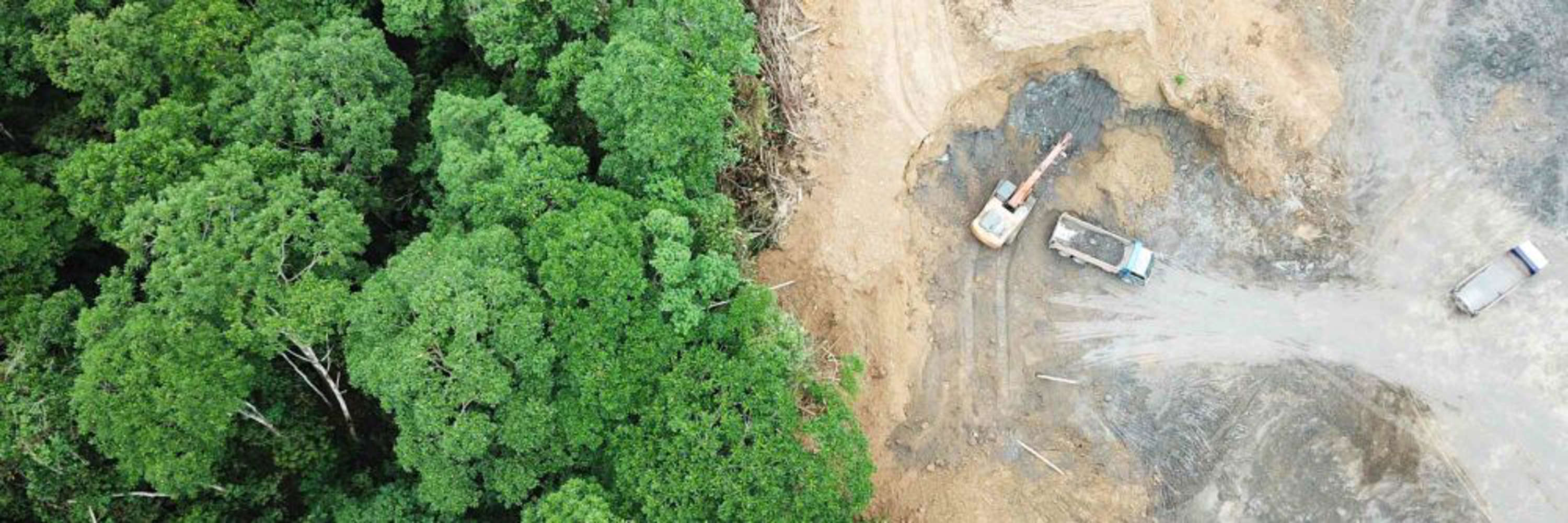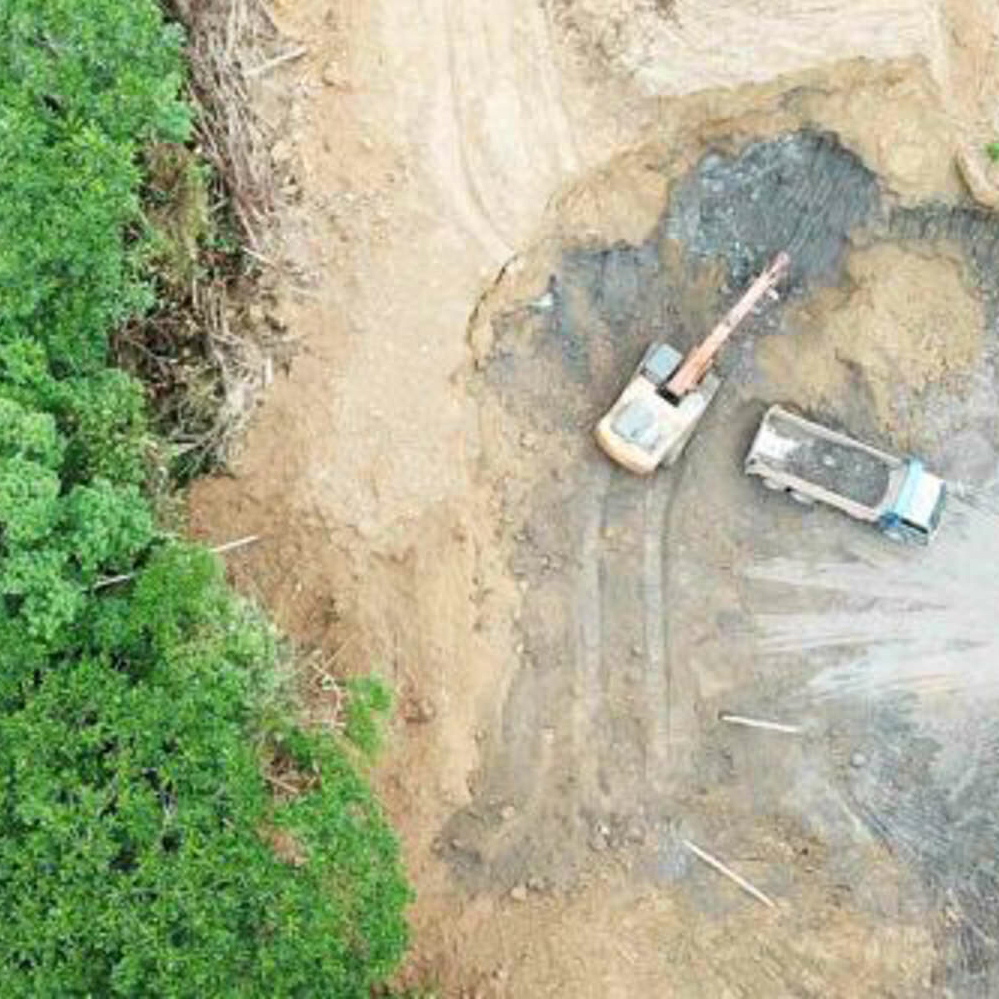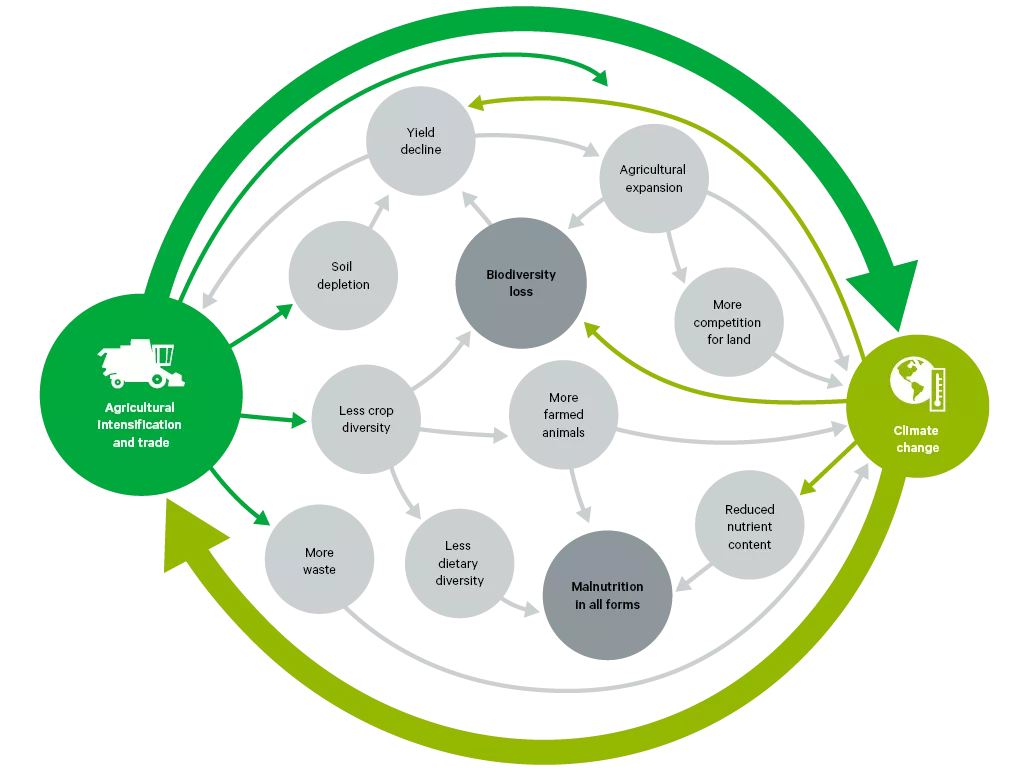

Our food system is destroying the planet: a plant-based diet can save the world

A new report by Chatham House, supported by the United Nations Environment Program (UNEP) and by Compassion in World Farming, highlights the “Impact of the food system on the loss of biodiversity”.
We are losing biodiversity and intensive animal farming is a major factor
Biodiversity – that is, the variety of all living things – is in serious danger: according to a recently published Chatham House report, the global rate of species extinction is at least 10, perhaps even one hundred, times higher than the average rate of the last 10 million years.
This means that we have never lost so many species and so much variety before. About a quarter of the species in most animal and plant groups are already threatened with extinction, and about one million other species are facing extinction in the next few decades.
Furthermore, the report highlights that the size of ecosystems has decreased by about 50% on average compared to their natural state, showing that it’s not just individual species but whole ecosystems that are being impacted.
Since 1970, the population of mammals, birds, fish, amphibians and reptiles has declined by an estimated average of 68%.
Food System Impacts on Biodiversity Loss
The loss of biodiversity also poses a threat to our global health. As we lose species, we lose genetic diversity and this makes animals and plants less resistant to threats like parasites and pathogens.
Intensive farming plays a big role here. The lack of genetic diversity in animals raised for food is one of the main risk factors for the outbreak of epidemics linked to farming. Similarly, SARS, Ebola, Swine Flu and Avian Flu viruses are all thought to have originated in animals and then jumped to humans, causing dangerous outbreaks.
The vicious circle destroying the planet
Faced with such alarming data, it is natural to ask: who is the culprit? The Chatham House report supported by the United Nations Environment Program identifies our current global food system as one of the main drivers of this terrible trend.
Over the past 50 years, the conversion of natural ecosystems to produce crops or pastures has been the main cause of habitat loss, leading to the reduction of biodiversity.
In recent decades, the entire food production system has been driven with a single approach – “produce as much food as possible, at the lowest possible price” – and although the intent of this principle may have been motivated by good intentions – that is, “to feed” the whole world – things have not turned out as expected.
This race for low-cost production has had devastating impacts on our planet without solving the problem of hunger in the world. According to the latest survey conducted by the World Health Organisation, as many as 820 million people do not have enough to eat.

So how do we save the world? The answer is in plant proteins
If the way we eat around the world is the main source of this dramatic loss of biodiversity, then there is only one thing left to do: change the way we eat.
Without reforming our food system, biodiversity loss will continue to accelerate, leading to further destruction of our planet’s ecosystems and habitats, and ultimately threatening our very existence.
The report shows that three fundamental and urgent steps are needed to stem the problem:
- Firstly, our global food system must converge towards diets based more on plants and food waste must be minimised to curb the devastating impact of animal agriculture on biodiversity, land use and the environment. Such a change would also improve global dietary health and reduce the risk of future pandemics. Together, these measures would reduce the pressure on our earth’s precious resources.
- Secondly, we need to protect larger areas of nature. Protecting the land from conversion or exploitation is the most effective way to preserve biodiversity, so we must avoid using land for raising farmed animals or growing feed for farmed animals to consume. Restoring native ecosystems on agricultural land offers the opportunity to rebuild natural habitats and increase biodiversity.
- Thirdly, we must adapt our farming practices to be more respectful of nature and biodiversity and introduce more variety into the crops we produce instead of producing a very small number of ‘monoculture’ crops on a massive scale.
Most monocultures, such as soybeans, are not used for human consumption, but rather become feed for the billions of animals raised around the world. A diet based on vegetable proteins would allow us to allocate the land now cultivated to feed animals to new, more sustainable crops that serve to feed people directly.
Choosing a plant-based diet on a global scale means fewer animals are exploited, less land is used to rear them, and fewer greenhouse gas emissions are emitted. Natural areas can also return to home wild species and the habitats of the past can be reconstructed.
A shift from beef to beans in the diet of the entire US population could free up 692,918 km2 – equivalent to 42% of US farmland – for other uses such as restoring ecosystems or more nature-friendly agriculture.
Food System Impacts on Biodiversity Loss
Time for a change
The report suggests that the first thing that we must do is to recognise the critical importance of food systems for the development of a sustainable future.
In 2019, Animal Equality released drone footage from the state of Pará in North Brazil showing destruction of the Amazon rainforest driven by animal agriculture. The raging rainforest fires garnered global attention as they were being purposely lit to clear land for cattle farming and grow soy crops for animal feed. According to the USDA, Brazil is the world’s largest exporter of both beef and soy. On one single stretch of road, our investigators witnessed more than 1,000 trucks loaded with soy travelling to the Port of Itaituba.
In 2020, our Animal Equality teams in Europe, together with 70 other organisations, wrote to the European Parliament with recommendations for a ‘European Green Deal’. Among the recommendations was a call to reform the CAP (the Common Agricultural Policy) so that public money was no longer destined for intensive farming methods, as well a recommendation for concrete support for farmers and researchers engaged in the development of plant-based proteins.
At the end of the vote on the CAP, the European Parliament confirmed, among other things, to continue the funding for intensive farming. This means we have to do more to fight against intensive farming to protect our environment and Animal Equality will continue to work with institutions at national and international level to do this.
The recipe for saving the world
As we have seen, thanks to the Food System Impacts on Biodiversity Loss report, the way we eat has a direct impact on our planet, on the climate, on biodiversity, on soil, on water, and on our own future on this planet.
With every meal, we have the power to decide which industries and which systems to support. Choosing a plant-based diet means choosing not to finance one of the most environmentally harmful industries: animal agriculture. And by opting for plant-based alternatives, we are also deliberately choosing not to finance an industry that needlessly exploits and kills billions of animals all over the world.
Millions of people in the UK and around the world are eating less meat and eating more plant-based foods. Together, we’re helping to accelerate a transition towards a new food system that protects animals and the planet.
Try plant-based today and check out our free, online cookbook here for some delicious plant-based recipes.

